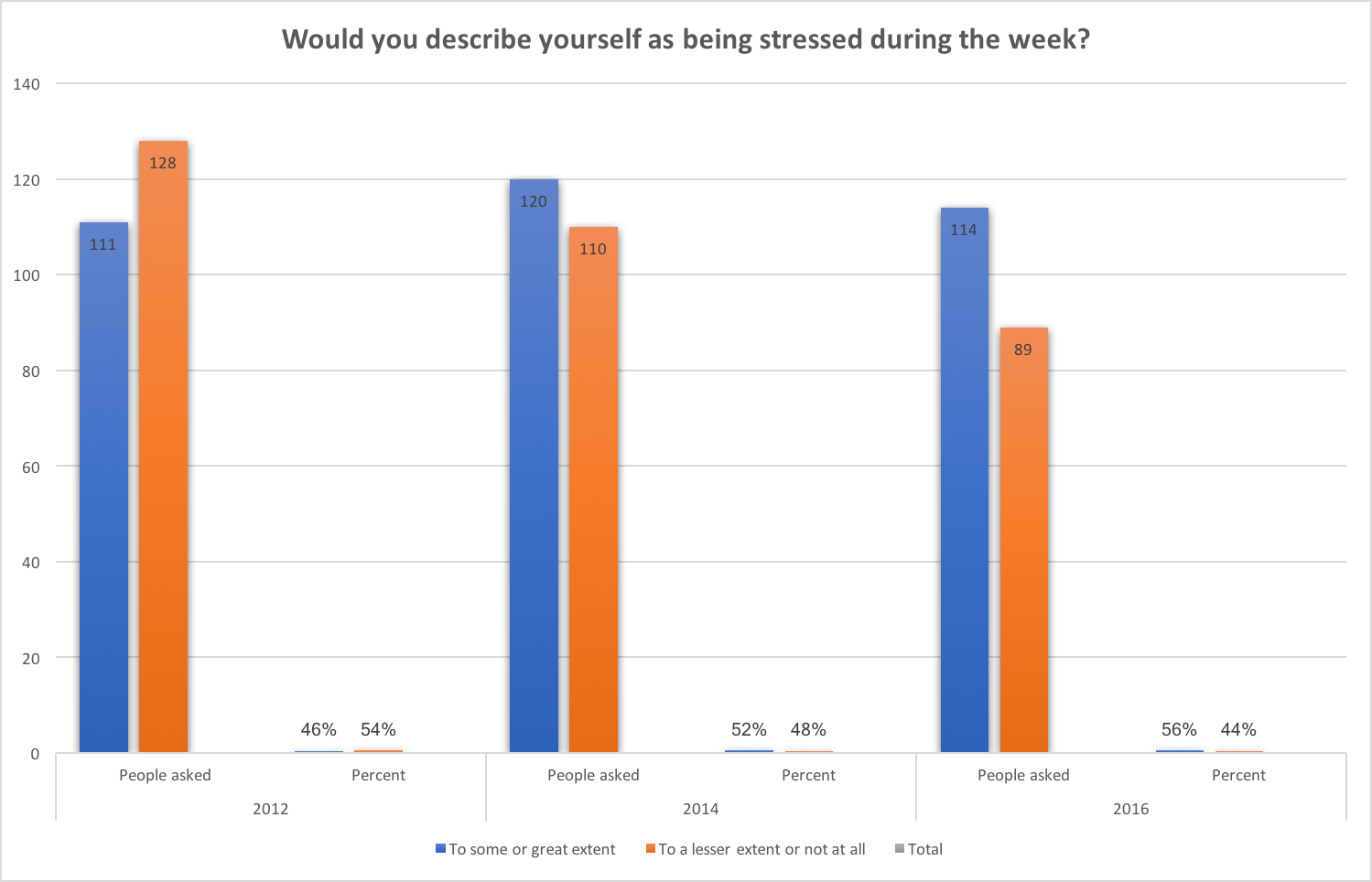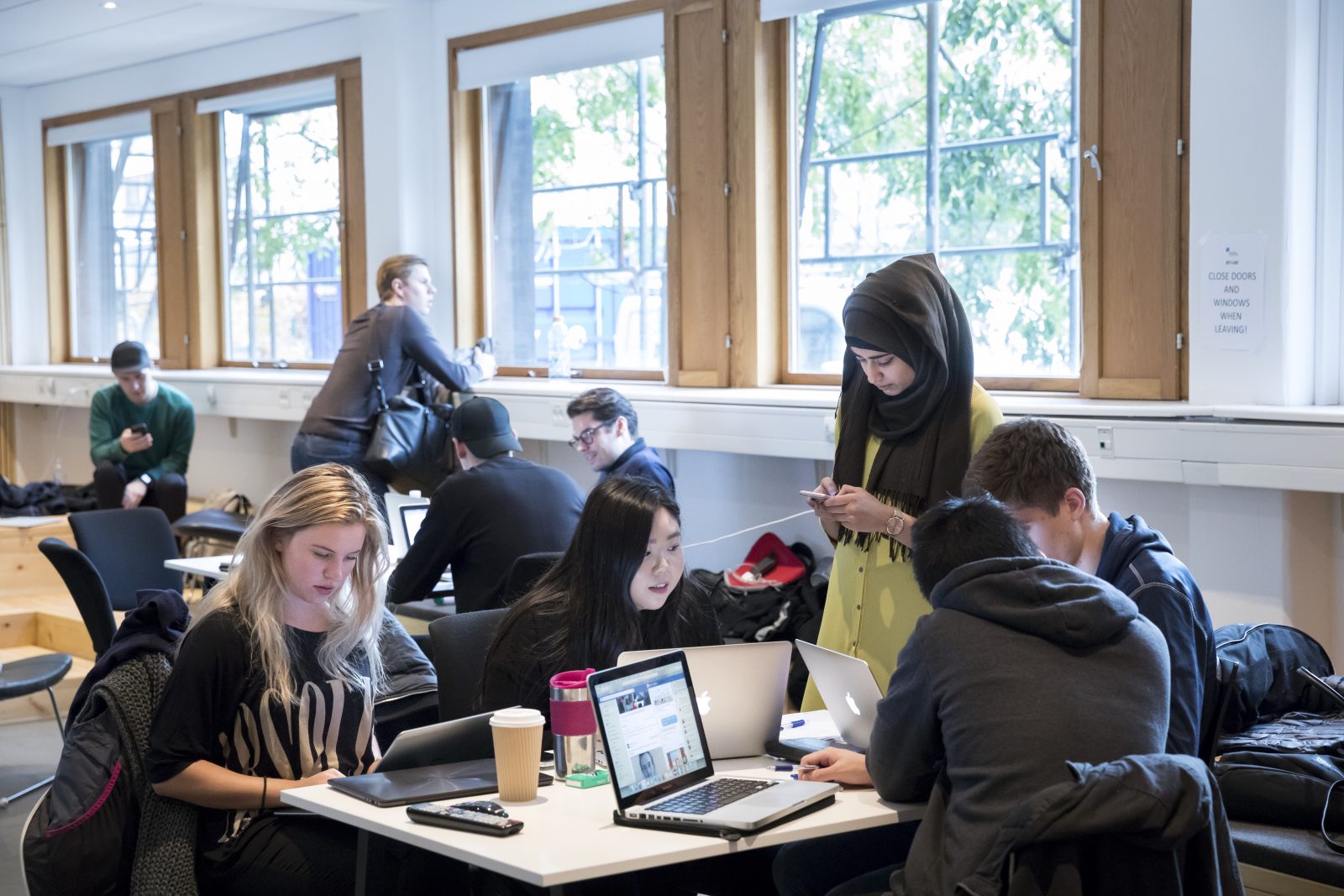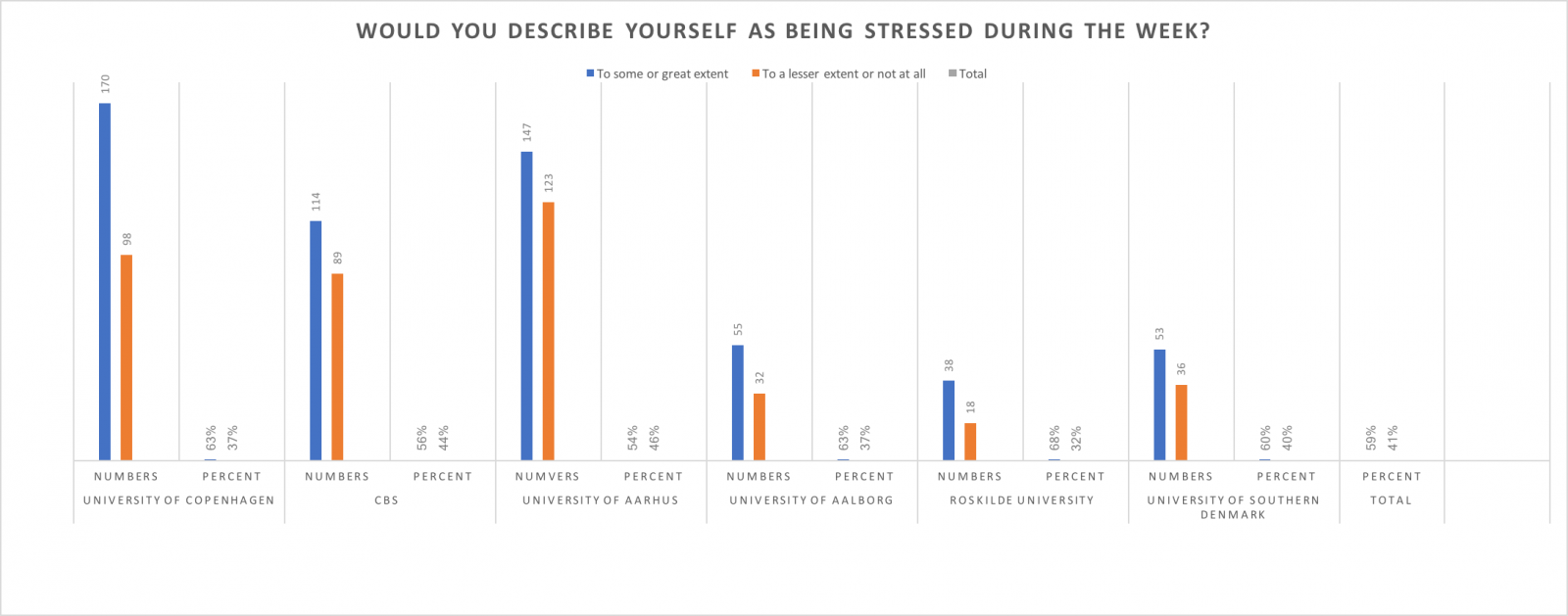More than every other CBS-student is stressed

Stress is becoming the new normal at CBS, as 56 percent of its students feel stressed. CBS Students and the senior management take this very seriously and want to initiate concrete solutions from September this year.
About 60 percent of all students at the Danish universities within the fields of law, business economics and social sciences are feeling stressed, reveals a new survey recently published by the association DJØF.
At CBS, the number is 56 percent and the tendency is increasing as the number has gone up from 46 percent in 2012.
In 2016, 62 percent of the respondents said, that they feel stressed because of the massive pressure they take upon themselves in order to achieve good grades. Secondly, 62 percent feel a great pressure to have the right skills and qualities on their CV.
And it is no surprise to Thomas Skinnerup Philipsen, President of CBS Students that this many students are stressed.
“I think this is a way bigger issue, than what you would think. Naturally, stress comes in connection with exams, but when I talk to students, stress is present throughout the entire school year,” says Thomas Skinnerup Philipsen and adds:
“A lot of students have told me that their reactions in connection with exams have become worse, and some even take medicine to calm their nerves.”

The senior management take a stern view of the survey as well.
“These are alarming numbers. It makes sense that students would experience stress in connection with exams, but they should not become sick from studying,” says Wilbert van der Meer, director of dean’s office and education at CBS.
The difference between being busy and stressed
At DJØF they are surprised by the numbers, which indicates that the students are pushing their limits to meet the expectations from themselves and society. Yet the stress situation among students is still not taken seriously.
“What I find the most frightening is that 60 percent feel stressed, and 22 percent have had to go see a doctor because of the stress. We are constantly being told that we are spoiled, but I really have a difficult time seeing that tendency in these numbers,” he says and continues:
“I’m from Northern Jutland, and I know what the difference between being busy and stressed is. You don’t go to the doctor, if you are just busy,” says Christian Nør-Larsen, President of DJØF-students.
Stress sent from above
It seems that all universities are only seeing this stress problem going one way and that’s up. But why?
Have students become more ambitious lately? Pushing themselves even harder in the quest to get the best jobs and grades, or is there another explanation to this increase?
Students try to live up to an ever changing ideal, and that eventually leads to stress
Christian Nør-Larsen, President DJØF Students
“One should not underestimate that stress is something that can come from above. The way politicians speak about students as being lazy and spoiled, and at the same time pass new initiatives to get the students through their studies faster. This will have consequences. And we have to admit that we have a problem,” says Thomas Skinnerup Philipsen.
Christian Nør-Larsen thinks that the politicians and the demands from society can’t be blamed solely.
“It would be easy to say that society and the politicians are to blame for this increase. It’s a combination. Students today are very ambitious – especially at CBS. No one wants to be mediocre. At the same time, you have companies asking for good grades one day and nice pictures from your travels the next. The requirements students have to possess just seem to grow,” says Christian Nør-Larsen from DJØF and adds:
“Students try to live up to an ever changing ideal, and that eventually leads to stress.”

Wilbert van der Meer agrees, and argues that too much focus on grades has spawned an unhealthy performance culture.
“The focus on good grades has created a culture in which students try to deliver exactly, what they think the teacher will reward with a good grade. In this way, we are promoting an individualistic culture in which the students – mistakenly – think that you can only enrich oneself at the expense of others,” he says.
Talk about it
Both Thomas Skinnerup Philipsen and Christian Nør-Larsen think that pulling back some of the latest initiatives pacing the students through their studies would help a lot.
“If some of these initiatives are pulled back, we would be able to structure the studies more individually. So that you don’t have to do 30 ECTS points all in once, if you just got back from being sick due to stress. But it’s most likely not going to happen, I’m afraid,” says Christian Nør-Larsen.
So, what can be done instead?

Thomas Skinnerup Philipsen says that first of all it should be less of taboo to talk about stress, as it is something people keep to themselves.
“First of all, we have to start talking about it and acknowledge it. And we have to try and change the discourse around stress, so it will be okay to call in sick, allow oneself to take a break, make it okay to fail an exam or postpone a subject. We have to make room to take a break,” he argues.
Grades spawn a performance culture
Another thing that can be done is to decrease the use of grades and tests, says Wilbert van der Meer. Instead, CBS should make sure to prompt curiosity and teach the students that problems and assignments during and after end education are better solved in cooperation with others.
“To do this we would need to develop new ways of teaching and give more feedback. And then we need to remember to tell the students that if you study full-time, you don’t have to do a lot more besides that to succeed. There are a bunch of advice on how to get a good job, but you don’t necessarily have to follow all of them,” he says.
Thomas Skinnerup Philipsen explains that CBS Students and the senior management are initiating concrete solutions at CBS which will start this September.
“If the students have any suggestions on how to make the study environment less stressful or less competitive, we would like to hear them. All suggestions are most welcome. If CBS can do anything to change the statistics, we should,” he says.


































































































































In order to make students less stressed, you need to either A) eliminate group work or B) focus more on optimizing the conditions for group work. Bad scheduled group work induces stress. And it is easy to see that CBS only apply group work due to your bad budgets (so you use fewer teachers per student).
But please. Look at for instance Aalborg University. They have specific subjects that teaches student on how you work better in groups and how you deal with problems. You need to do things like this or eliminate group work completely.